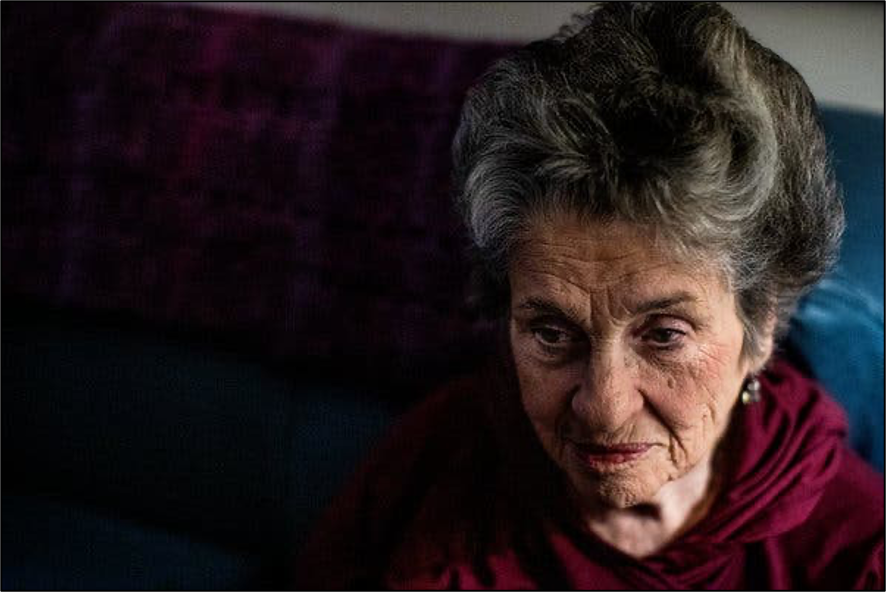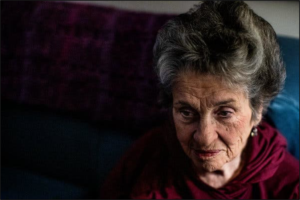The medical profession has been troubled for years by a persistent shortage of doctors who treat the oldest and sickest patients.
By Paula Span/The New York Times
Jan. 3, 2020
Linda Poskanzer was having a tough time in her late 60s. “I was not doing well emotionally,” she recalled. “Physically, I didn’t have any stamina. I was sleeping a lot. I wasn’t getting to work.”

A therapist in Hackensack, N.J., Ms. Poskanzer was severely overweight and grew short of breath after walking even short distances. Her house had become disorganized, buried in unsorted paperwork. The antidepressant she was taking didn’t seem to help.
Her son, visiting from Florida, called his sisters and said, “Mommy needs an intervention.” One of her daughters made an appointment with a geriatrician — a physician who specializes in the care of older adults. Dr. Manisha Parulekar, now chief of geriatrics at Hackensack University Medical Center, suggested her new patient take action on several fronts. She arranged for a sleep study, which found that Ms. Poskanzer suffered from apnea. She prescribed a different antidepressant, and physical therapy in a pool to help rebuild her stamina.
And weight loss. Eventually, the geriatrician agreed that bariatric surgery made sense. Over nine months, Ms. Poskanzer lost 75 pounds; she has shed another 15 since.
Now about to turn 80, Ms. Poskanzer is still providing therapy, 30 hours each week, feels “full of spirit” and continues to see her geriatrician every four months. “She sits and talks, which a lot of doctors don’t do anymore,” Ms. Poskanzer said. “And she knows me. I feel very well taken care of.”
Testimonials like this spotlight the rising need for geriatricians. These doctors not only monitor and coordinate treatment for the many ailments, disabilities and medications their patients contend with, but also help them determine what’s most important for their well-being and quality of life.
Patients like Ms. Poskanzer often can’t easily find geriatricians like Dr. Parulekar, however. As the nation’s older population surges, the gap between need and supply has steadily widened, and a persistent shortage of geriatricians has troubled the medical profession for years.
Geriatrics became a board-certified medical specialty only in 1988. An analysis published in 2018 showed that over 16 years, through academic year 2017-18, the number of graduate fellowship programs that train geriatricians, underwritten by Medicare, increased to 210 from 182. That represents virtually no growth when adjusted for the rising United States population. “It’s basically stagnation,” said Aldis Petriceks, the study’s lead author, now a medical student at Harvard.
Moreover, geriatrics fails to attract enough young doctors to the graduate fellowships it does offer. Leaving aside geriatric psychiatry, more than a third of 384 slots went unfilled last year, the American Geriatrics Society reports.
If one geriatrician can care for 700 patients with complicated medical needs, as a federal model estimates, then the nation will need 33,200 such doctors in 2025. It has about 7,000, only half of them practicing full time. (They’re sometimes confused with gerontologists, who study aging, and may work with older adults, but are not health care providers.)
Why do so few residents choose to specialize in geriatrics? Though salaries are rising, total compensation (wages plus certain benefits) for geriatricians in 2018 averaged $233,564, according to the Medical Group Management Association. Anesthesiologists earned twice as much; radiologists and cardiologists topped $500,000.
“These are smart people looking at economic reality,” said Dr. Mark Supiano, a geriatrician and researcher at VA Salt Lake City Health Care System. Treating patients covered by Medicare, which pays less than commercial insurance, is a slow way to repay medical school loans.
Nor does the field offer much glamour or the prospect of medical heroics. “Having patience, having good communication skills, it’s a different personality than being a surgeon,” Dr. Supiano acknowledged. Yet a much-cited 2009 survey of 42 medical specialties found that geriatricians reported higher career satisfaction than most.
Not every older person needs a geriatrician, but the federal model estimates that 30 percent of the over-65 population does. This is especially true “when someone has three or more chronic conditions and is over 85,” said Nancy Lundebjerg, chief executive of the American Geriatrics Society. Nevertheless, given the numbers, “we’re not going to address this growing older population through some miraculous influx of specialized geriatricians,” Mr. Petriceks said.
Leaders in geriatrics agree, and while they continue working to bolster their numbers, they’re also adopting other strategies. Dr. Mary Tinetti, chief of geriatrics at the Yale School of Medicine, has called for geriatricians to serve as “a small, elite work force” who help train whole institutions in the specifics of care for older adults.
“The most important thing geriatricians can do is make sure all their other colleagues” understand these patients’ needs, she said, including nurse-practitioners, physician assistants, therapists and pharmacists. To some extent, this is already happening. Medical associations representing cardiologists and oncologists have begun focusing on older patients, Ms. Lundebjerg pointed out.
Health systems are adopting age-friendly approaches, like specialized emergency rooms. The American College of Surgeons’ new verification program sets standards hospitals should meet to improve results for older patients.
Last month the Senate Committee on Health, Education, Labor and Pensions voted to reauthorize a $41 million program that educates health professionals in geriatrics; it awaits a floor vote. A companion bill has already passed the House of Representatives. “It’s money very well spent,” Dr. Tinetti said.
Health professionals increasingly recognize that if they’re not in pediatrics, they will be seeing lots of seniors, whatever their specialty. A 2016 American Medical Association survey, for example, found that close to 40 percent of patients treated by internists and general surgeons were Medicare beneficiaries.
“Our medical students are living and breathing this,” said Dr. Supiano, who also teaches at the University of Utah School of Medicine. He warns them, “If you don’t like taking care of older people, find another career.”








